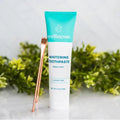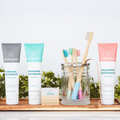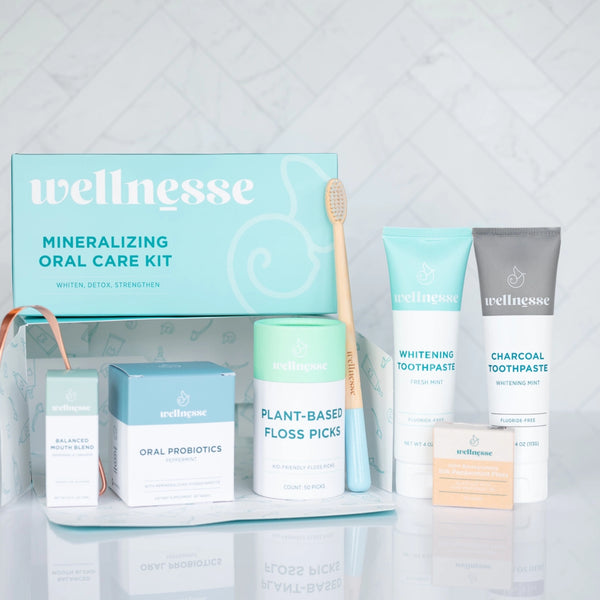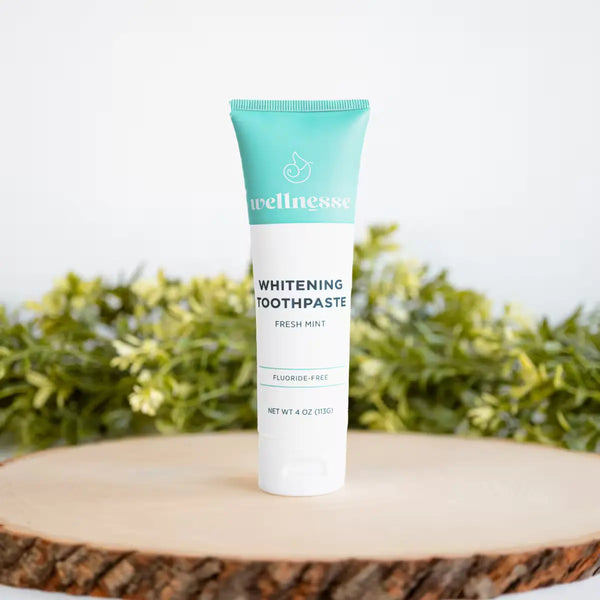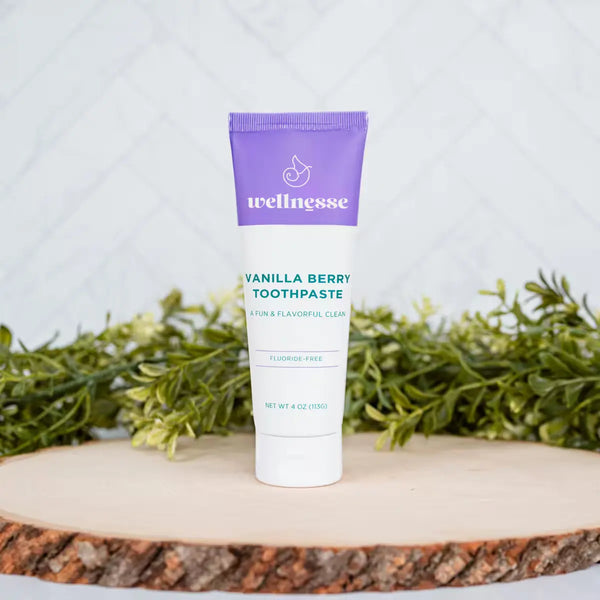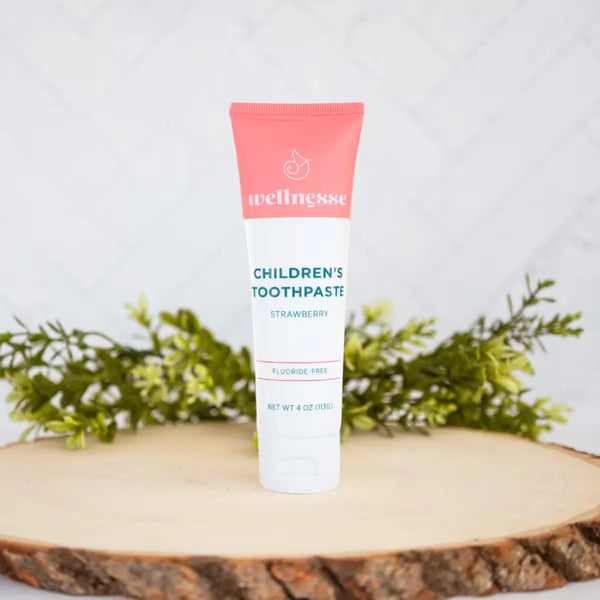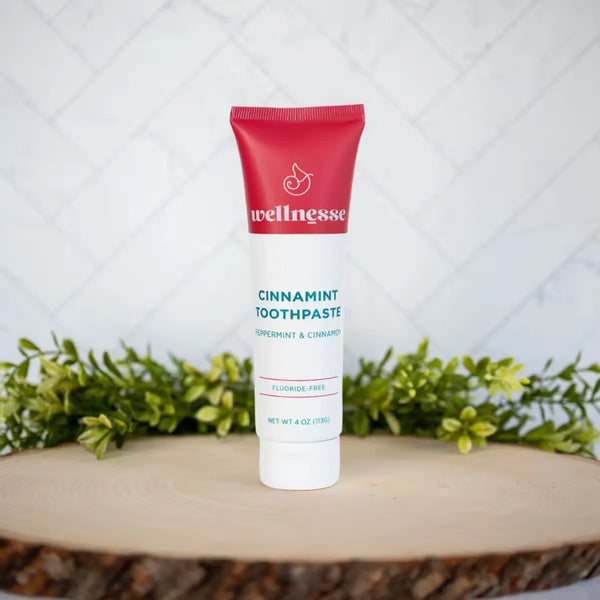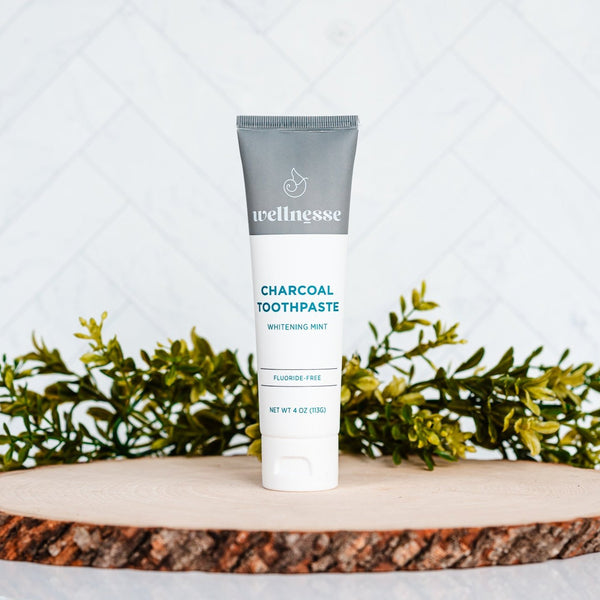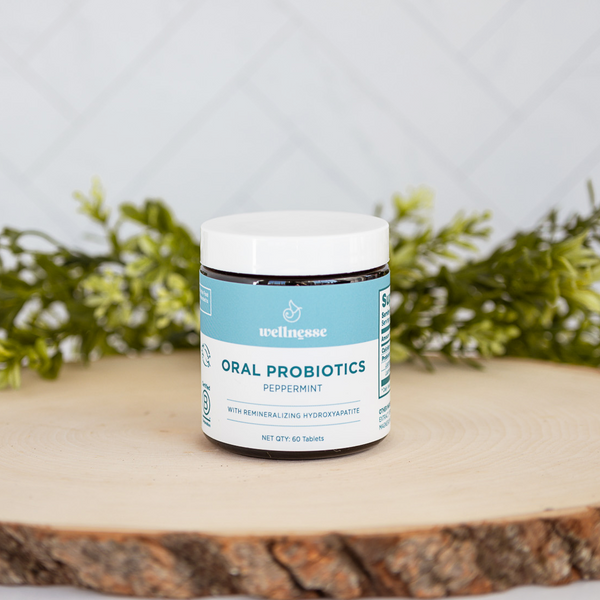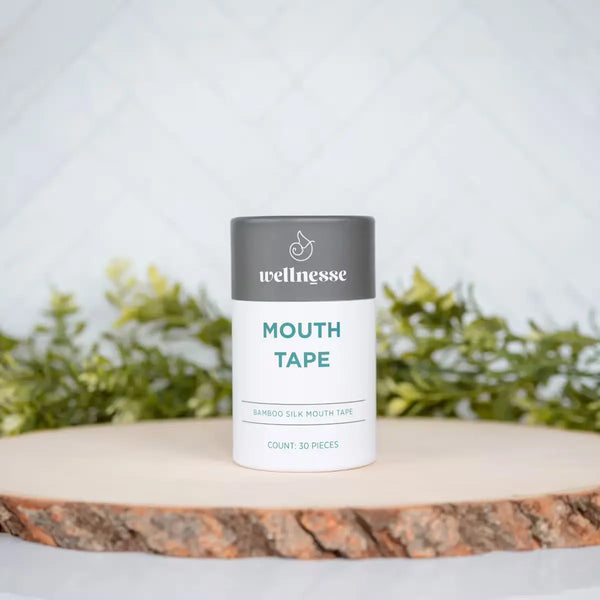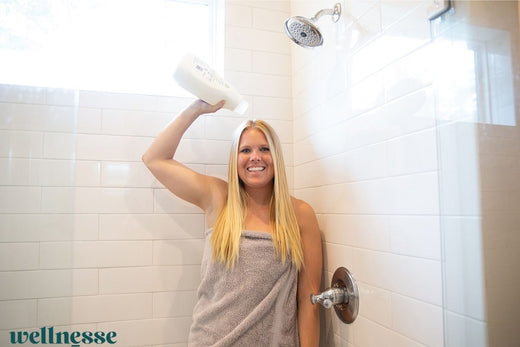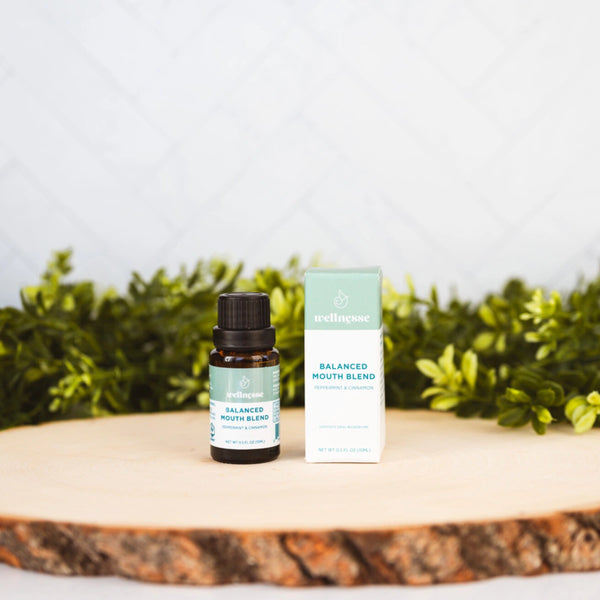We love our hair. We'll spend hours and a lot of money to make it look its best. A good or bad hair day can make a good or bad day. Yet, we dry it out, strip it of its natural shine, and style it with tools that make it brittle and frizzy. Then, to 'fix' it, we soak and lather it with harsh chemicals, further deteriorating the health of the hair and scalp. Most of the problems that lead to damaged hair come down to toxic haircare products - detergents - that destroy the hair's integrity, and it's time to cut them out.
Start your clean haircare journey with our sulfate-free Restoring Shampoo, and nourish your hair from root to tip.
A Little Defining
So, what do we mean when we say 'detergent'? Surely we aren't actually saying conventional shampoo is the same as laundry soap, right?
Sadly, in many cases, one of the only differences between the two is the brand and the packaging. Both products contain chemicals and toxins intended merely to strip and sanitize. These hair' detergents' use parabens, sulfates, artificial colors, artificial fragrances, and even triclosan (a hormone disruptor) and formaldehyde (a carcinogen) to 'clean' your hair like laundry, not nourish it like the beautiful, essential part of your image that it is!
In this article, we're diving into a few common practices that make our hair even more vulnerable to these toxins. Then we're going to talk about what to use instead!
'Over-Washing': Fact or Myth?
Overwashing is a surprisingly harmful habit, which is especially common among people with oily hair types. We don't blame you; we've been there! Of course, the issues caused by over-washing only get worse when we wash with harmful, toxic products.
How frequently we should wash our hair can be affected by several factors. Relevant considerations include hair texture, hair type (dry, oily, etc.), thickness/thinness, hair treatment history, age, activity level, and even overall body health.
People with drier hair and scalps may wash their hair less frequently than those with oily hair, and vice versa. However, there are ditches on both sides of the road. If you wash your hair too frequently, you can strip away all the natural oils, prompting your scalp to produce more oil to compensate for what it perceives as a deficiency. Conversely, spacing washes too far apart can lead to issues like itchiness and dandruff. Health should be considered because they can influence what you perceive your hair type to be (ex: The hormonal shifts from menopause can affect sebum production in the scalp).
"You don't get it," you say, "if I don't wash my hair all the time, it feels dirty."
There's no way to change your natural hair type (we all have different biological make-ups!), but the odds are good that you could be doing things to make your hair more manageable.
We touched on this above, but you must ensure you aren't going overboard with how frequently or infrequently you're washing your hair. Washing every day is generally considered to be too frequent. Symptoms like scalp itchiness or odor show you're waiting too long. If your clean hair gets oily immediately, try a gentle, natural dry shampoo to add volume and stretch your 'good' hair days. If washing your hair seems to dry out your hair and scalp, make sure you're using products that include moisturizing ingredients!
This leads us to the most important step in avoiding over-washing: Using the right ingredients!
Conventional haircare products are full of damaging chemicals and additives. Parabens, sulfates, and synthetic fragrances (and so many more) strip away natural oils, irritate the scalp, and weaken the hair, not to mention the toxicity risks to the entire body.
Our hair is designed to care for itself (those pesky oils are for natural moisture and shine!) So, it makes sense that clean, natural haircare formulas are the best solution for strengthening and supporting your unique hair type! More on that later. ;)
Protecting Color-Treated Hair
It's well known that color-treating hair can cause damage and weakness in the hair shaft; it's just a reality of using powerful treatments to alter the hair. This vulnerability is another reason it's essential to use products that naturally repair the hair and why using harsh conventional products can take existing damage and make it irreversible.
Using the right formulas can not only help to strengthen weakened hair - they can also help to preserve the color. Anyone who has dyed their hair has probably had the unfortunate experience of watching their color fade (or worse, change color!) after just a few washes. This can happen for various reasons, from harsh detergents stripping the color to ingredients in the formula interacting with the dye molecules.
While no hair product will ever be 100% ‘color-safe’ (because the color isn't natural), opting for clean, gentle formulas free from sulfates, parabens, and detergents is the best step you can take toward keeping your beautiful color looking fresh for as long as possible!
Repairing Heat Damage
Styling tools, like hair dryers and curling irons, can heavily affect hair health. Extreme heat - some tools heat up to 450°- applied directly to the hair shaft can cause dryness, breakage, frizz, tangles, and split ends. High temperatures applied to the scalp (usually with a hair dryer) can cause countless conditions, including skin dryness, inflammation, irritation, flakiness, itching, and even hair thinning.
Now, we aren't saying to give up your styling tools forever. As with most things in life, moderation is key. If you use hot tools every day, you may want to try giving heat styling a break. (Consider trying out heatless hairstyles - they're all the rage these days!) If you use heat with any regularity, treating your hair with moisturizing, restorative formulas rich in vitamins and amino acids is essential. We love keratin, quinoa, coconut oil, and shea butter!
Conventional shampoos don’t typically include these ingredients (let alone in a pure form), but they do contain harsh alcohols, fragrances, and ‘cleaning’ agents that increase dryness and further weaken the hair shaft.
Sun exposure is a less common and less frequently discussed instance of heat application. We're all for soaking up the Vitamin D, so don't start skipping out on your outdoor activities!
Instead, implement a few easy precautions to keep your hair (and skin) healthy. Assuming you're already using the best products available, try stepping outside during times of the day when the UV Index is slightly lower, throwing on a stylish hat, or even eating your sunscreen. Adding healthy fats, antioxidants, and Vitamin D into your diet can reduce inflammation and free radicals in the body.
Ingredients That Feed Hair
Obviously, not all shampoos are equal. Some leave our hair worse than we found it, some just barely 'get the job done,' and some deliver nourishing ingredients that keep our hair glowing even after a long day at the gym, in the sand, or under the sun.
What makes them different? The real hair food.
Here's a rundown of some of our favorite natural, whole foods for healthy hair:
- Avocado Butter: Guards against UV damage by moisturizing, conditioning, and coating the hair shaft. The fat content delivers more bioavailable forms of vitamins, helping the hair and scalp receive more benefits even with less washing.
- Nettle: This wild-harvested backyard plant is uniquely effective at boosting hair growth. Nettle helps balance the scalp by reducing buildup, increasing circulation, and decreasing inflammation.
- Argan Oil: Especially useful for guarding against wrinkles, UV damage, eczema, and breakage. Argan oil makes a phenomenal deep conditioner or hair mask.
- Aloe Vera: Reduces itching and dandruff, conditions the hair, promotes new growth, and adds shine.
- Lavender: Detoxifies the scalp and balances out the natural pH of the scalp and hair.
Hair Food Over Hair Detergent
If we haven't said it enough already, it bears repeating again: Your hair needs (and deserves!) food, not detergent. Throw out the harsh, chemical-laden products and replace them with clean, powerful formulas that fortify and revive your hair's natural vibrancy! Say goodbye to brittle hair and breakage, and say hello to healthy volume and shine. Trust us, a little bit of something real goes a long way.
Resources
Wells, Katie. (2019, April 9). Why I Eat My Sunscreen to Protect Skin From the Inside Out. Wellness Mama. https://wellnessmama.com/4621/eat-my-sunscreen/
Wells, Katie. (2020, February 26). 8 Benefits of Stinging Nettle (& How to Use It in Tea, Tonics, Haircare & More). Wellness Mama. https://wellnessmama.com/4807/nettle-herb-profile/
Wells, Katie. (2012, May 14). The Importance of Balancing Stress Hormones. Wellness Mama. https://wellnessmama.com/4925/balancing-stress-hormones/
Wells, Katie. (2020, January 24). Health Benefits of Avocado Oil: Is It Healthier Than Coconut Oil? Wellness Mama. https://wellnessmama.com/123677/avocado-oil/
Wells, Katie. (2020, April 29). Top 10 Argan Oil Benefits for Skin, Face, and Hair. Wellness Mama.
https://wellnessmama.com/426023/argan-oil-benefits/
Wells, Katie. (2015, March 31). Do Food Dyes Affect Behavior? Wellness Mama.
https://wellnessmama.com/36873/do-food-dyes-affect-behavior/
